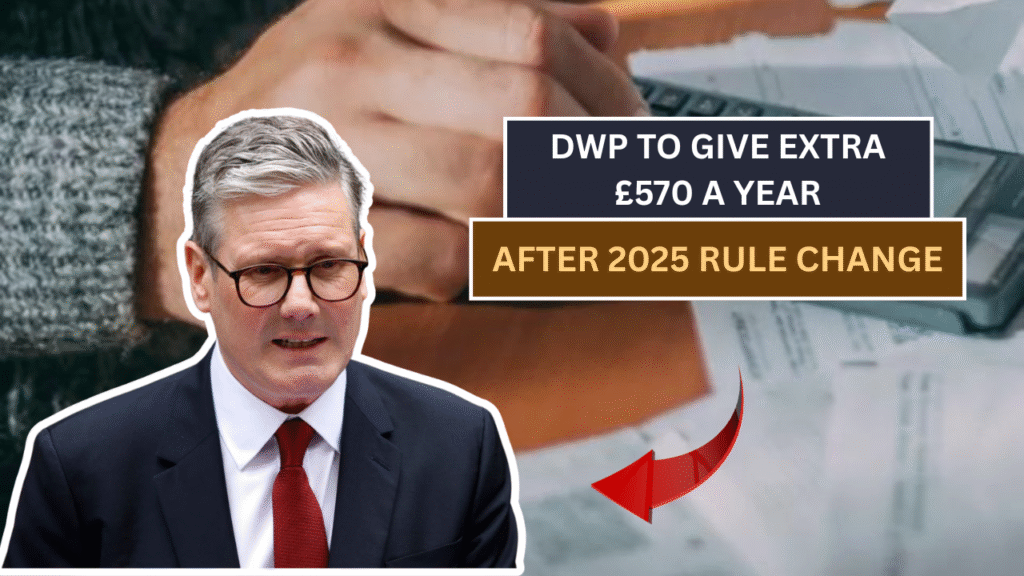In a major shake-up of benefit repayments, the Department for Work and Pensions (DWP) has announced that millions of Universal Credit claimants will be allowed to keep more of their benefits from April 30, 2025. This change could result in an annual boost of up to £570 for some households.
The move is part of a broader government effort to ease the financial burden on low-income families amid continued pressures from the cost-of-living crisis. The key reform involves reducing the cap on debt repayments automatically deducted from Universal Credit (UC) payments from 25% to 15% of a claimant’s standard allowance.
What’s Changing?
Currently, the DWP deducts money from UC payments to recover debts such as advance payments, budgeting loans, or overpayments. Under the existing rules, these deductions can amount to as much as 25% of the standard allowance. For many, this has significantly reduced the money they receive each month.
Starting from April 30, 2025, this maximum deduction rate will fall to 15%.
According to the government, this change will allow claimants to retain more of their entitlement:
- Single adults over 25 will save up to £420 annually.
- Couples on Universal Credit could see savings of up to £570 per year.
This will be especially meaningful for the estimated 1.2 million households that currently experience high levels of deductions from their benefit payments.
DWP Statement and Purpose of the Reform
A spokesperson from the DWP emphasized the government’s intent to offer “greater financial breathing room” to families relying on welfare support. The change reflects a growing recognition that high deduction rates can drive claimants further into hardship, undermining the original purpose of Universal Credit.
The reform is also expected to help improve claimants’ ability to manage their finances independently, reducing dependency on additional borrowing and crisis loans.

Rising Universal Credit Rates
Alongside changes to repayment deductions, the standard Universal Credit allowance is set to increase over the next few years. This staged increase was outlined in the Spring Statement 2025 and is designed to ensure UC keeps pace with inflation and living costs.
For example:
- In 2024/2025, the standard allowance for a single adult over 25 stands at £91 per week.
- By 2029/2030, it is projected to rise to £106 per week.
Changes to Disability Support from 2026
While these developments offer welcome relief to many, there are additional reforms on the horizon that could reduce support for some.
Starting in 2026/2027, the Limited Capability for Work and Work-Related Activity (LCWRA) element of Universal Credit will be cut from £97 to £50 per week for new claimants. This change will not affect current recipients, whose payments will be frozen at existing levels until at least 2029/2030.
The government argues this change is intended to better align disability benefits with work incentives. However, disability rights groups have voiced concerns about the potential impact on vulnerable individuals who may face higher living costs or barriers to employment.
Who Benefits Most?
According to independent welfare analysts, the reduction in deduction caps will be most beneficial to:
- Claimants who took out an advance payment while waiting for their first Universal Credit payment.
- Those repaying overpaid tax credits or benefit errors.
- Individuals subject to court-ordered fines or rent arrears deductions.
Reducing the deduction rate will provide many households with a critical cash flow boost, potentially helping them avoid borrowing from high-interest lenders or falling behind on essential bills.
How to Check if You’re Affected
Universal Credit claimants can check their deductions by logging into their Universal Credit online account. The breakdown includes details on how much is being deducted, for what reason, and how long the deductions are scheduled to last.
Conclusion
The DWP’s upcoming rule change marks a significant step toward alleviating some of the most pressing financial challenges facing Universal Credit claimants. By lowering the cap on automatic deductions, the department is responding to long-standing criticism about the harshness of repayment terms.
While concerns remain over cuts to disability-related support in future years, the changes taking effect in April 2025 are likely to deliver meaningful benefits to more than a million households especially those with the tightest budgets.









